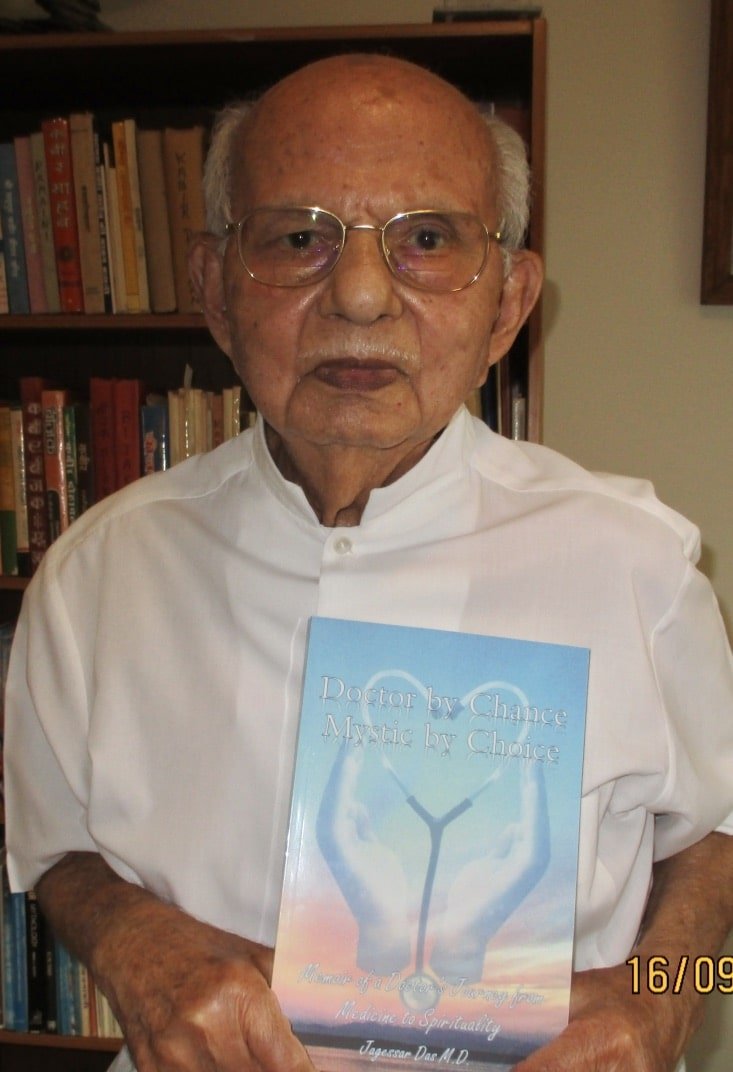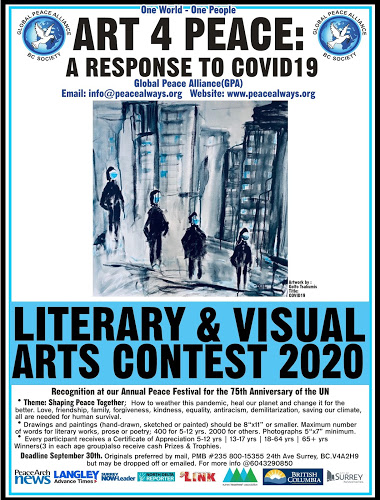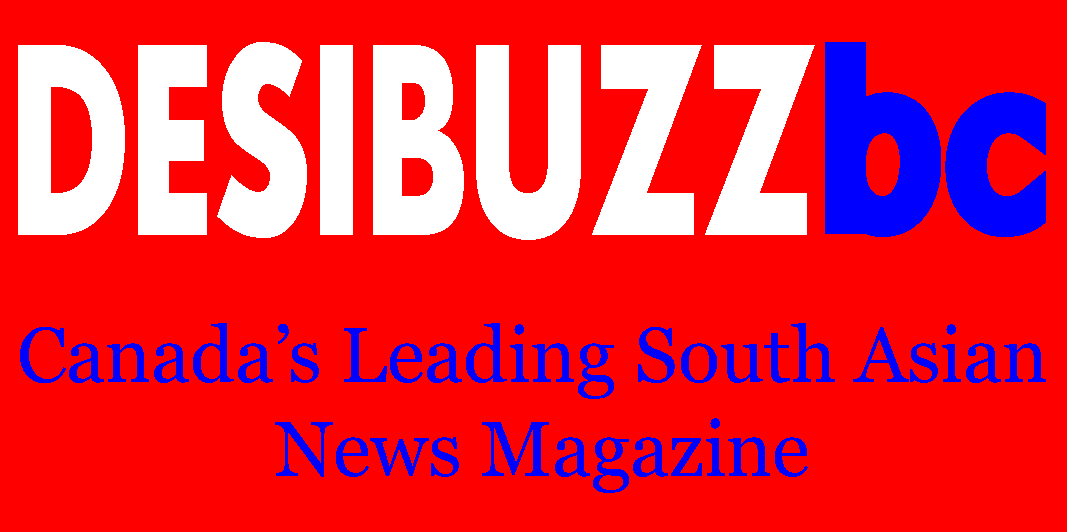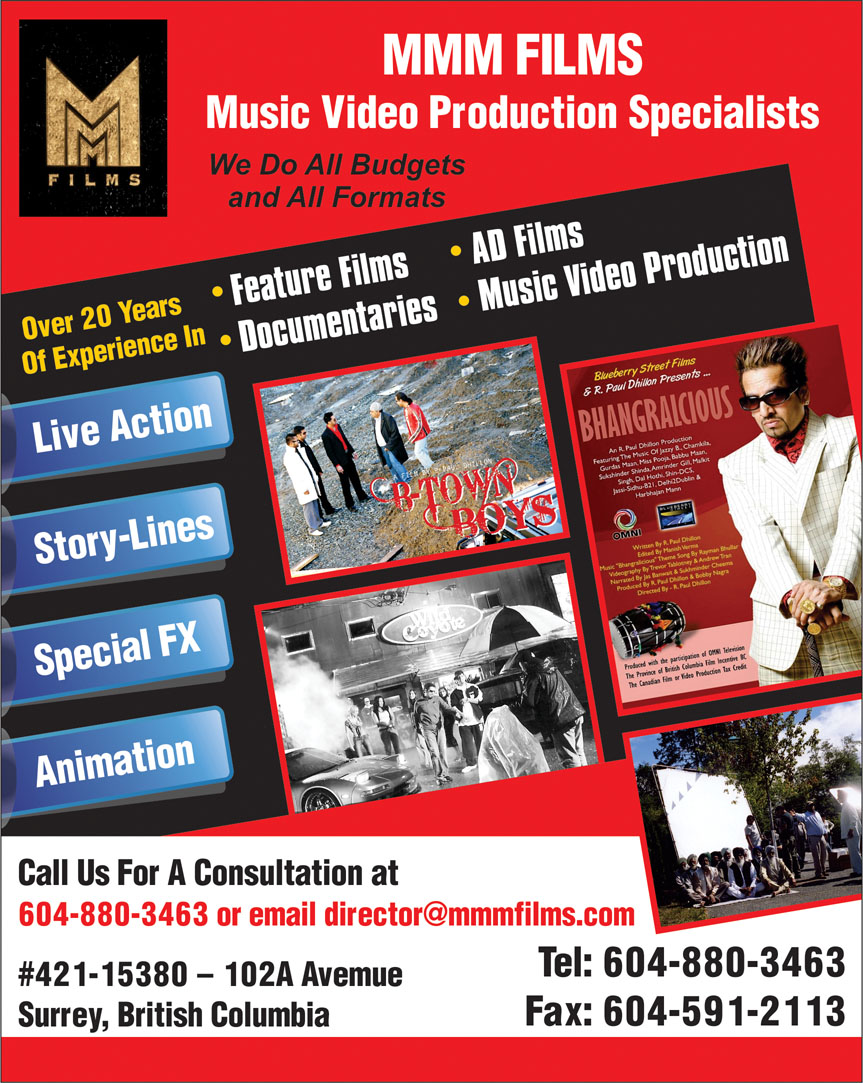DESIBUZZCanada
Events Listings
Dummy Post

International Day Of Yoga To Be Virtually Celebrated Saturday At 4pm

CANCELLED: Coronavirus Fears Kills Surrey’s Vaisakhi Day Parade

ADVERTISE WITH US: DESIBUZZCanada Is The Most Read South Asian Publication Online

SURREY LIBRARIES: Get Technology Help At Surrey Libraries

WALLY OPPAL: Surrey Police Transition Update On Feb. 26

GONE ARE THE DAYS - Feature Documentary Trailer

Technology Help At Surrey Libraries

Birding Walks

Plea Poetry/short Story : Youth Contest

International Folk Dancing Drop-in Sessions
DOCTOR BY CHANCE MYSTIC BY CHOICE: Memoir Of Dr. Jagessar Das’s Journey From Medicine To Spirituality
- September 24, 2020


By Acharya Dwivedi
SURREY - The Memoir: Doctor by Chance Mystic by Choice is written by a distinguished spiritual person and scholar Dr. Jagessar Das. The title of the book is exceptionally fascinating and exciting as the subject himself.
I have known Dr. Das for twenty-five years. Together we have organized and participated in many interfaith conferences, and discussed the philosophy of Vedanta, essence of dharma, theory of karma, spirituality and mysticism, etc. I have found him well read, a person of great wisdom and uncommon brilliance.
The starting point of his life’s journey was British Guyana. He was born to indentured labourers who went from India to work on the sugar plantations. His early life in a remote village, Coghlan Bush near Demerara River, was full of surprises and events. He worked on the farm and did various duties. He met, on several occasions, snakes, lizards and crocodiles. He worked in planting paddy seedlings, harvesting and threshing. His childhood reminds me the boyhood life of Paramahansa Yogananda (Autography of Yogi) at Gorakhpur in India.
We should not forget that Dr. Das is a true boy of a village and a son of a Sadhu. He carried with him hard work, simplicity and truthfulness which are the trademark of village life. Once there was severe drought in the country and his father fasted for 21 days for rain, and it rained. People, who lived at that time, to some extent, went through mystic experience. He inherited spiritualty, oneness of the human race, vegetarianism and Kabir’s philosophy from his respected father. Undoubtedly, he has expanded and strengthened them to new heights.

He tried the goldsmith and tailoring professions for a while. After completing Junior and Senior Cambridge Examinations, he wanted to become medical doctor. Because he has seen how his parents died with lack of medical facilities and no medical help was available in villages. He realized that there was solemn need of medical doctor and he carried subconsciously a leaning towards medicine. After completing his academic goal in Guyana he applied for admission in medicine and he luckily got in Howard University, USA.
He took plane to Port of Spain, Trinidad. He thought that it would be right place for shopping for the foreign trip. He was heart-broken after getting the rejection letter, on medical ground, from the American Embassy. He did not give up and applied for admission to other universities. “Once the decision was made that I should study medicine” then he focused on his goal (Back to School, P.22). He further wrote “As I look back at my earlier years in Guyana, I did not want to be a goldsmith” (Canada My Destination, P. 33).
During his stay in Trinidad he learnt many skills including photography. He applied for admission to many universities and was accepted by Calcutta University, India and UBC in Canada. He took practical decision and opted for Canada because of the employment opportunities during his student’s life in university.

Although Das’ five days road journey from Montreal to Vancouver by Greyhound Bus was strenuous, he got a chance to see the beautiful landscape of Canada. He worked as a street photographer, gardener and car washing to meet his expenses of the UBC. The terrible winter, long hours of standing on Granville Street for customers did not discourage him, but reflects his determination. He completed his M. D. degree and other formalities. He started his medical practice in city of Delta. During his medical practice he emphasized on the physical, mental and spiritual needs of the patients.
He read autobiographies of eminent spiritual leaders such as Swami Sivananda and Lord Buddha, and the teachings of other Eastern and Western personalities. Dr. Das was thus able to write in his Memoir about a wide range of subjects such as peace, meditation, stress management, vegetarianism, spirituality and mysticism.
The purpose of this book is to provide a welcoming forum to religious leaders, interfaith activists and equally laymen to explore the differences and celebrating their similarities.
I personally look at this book as a piece of literature. The journey from village of Guyana to campus of UBC is full of curious stories and exciting happenings what we find in good novels. The description is vivid, fascinating but real. The village seems more real and live in his writings.
He denounced decadence and cynicism of traditional vocabularies; and enriched the treasury of diction by using ordinary and common words which classical writers discarded from the realm of prose, and thus came closer to the readers.
A spiritual crisis happens when a person finds himself trapped in an outmoded, suffocating network of values and conceptions. World is surprisingly over-loaded with religions. Here comes Dr. Das with his unique offer of spirituality, oneness of living beings, compassion, universal brotherhood, non-violence and peace.
I believe this book will generate an interest in spirituality and the relevance of Kabir’s philosophy for the modern man. The book has an intrinsic power to inspire and influence millions of people.
The Memoir was launched on September 10, 2020 on Zoom and Avinash Maniram was the moderator. Welcoming by Avinash was followed by Dr. Das’ speech who thanked the editors Urmila Das and K. Jane Watt for their help and support. Anoushka, Ishrani and Avnish Maniram read selected texts from the book. Anjani and Nishant Rampersaud read passages from the book. Mahant Jay Jaggessur, Acharya Dwivedi and Connie Waterman lauded Dr. Das, who is an international authority on the mystic Kabir, and a leading spiritual leader of Canada, for his insight and enlightenment. Kamini Gaur and Sobha Rae appreciated Dr. Das’ extensive work on Kabir. Urmila Das who is the Asst. Editor commented on the process of editing a book.


















